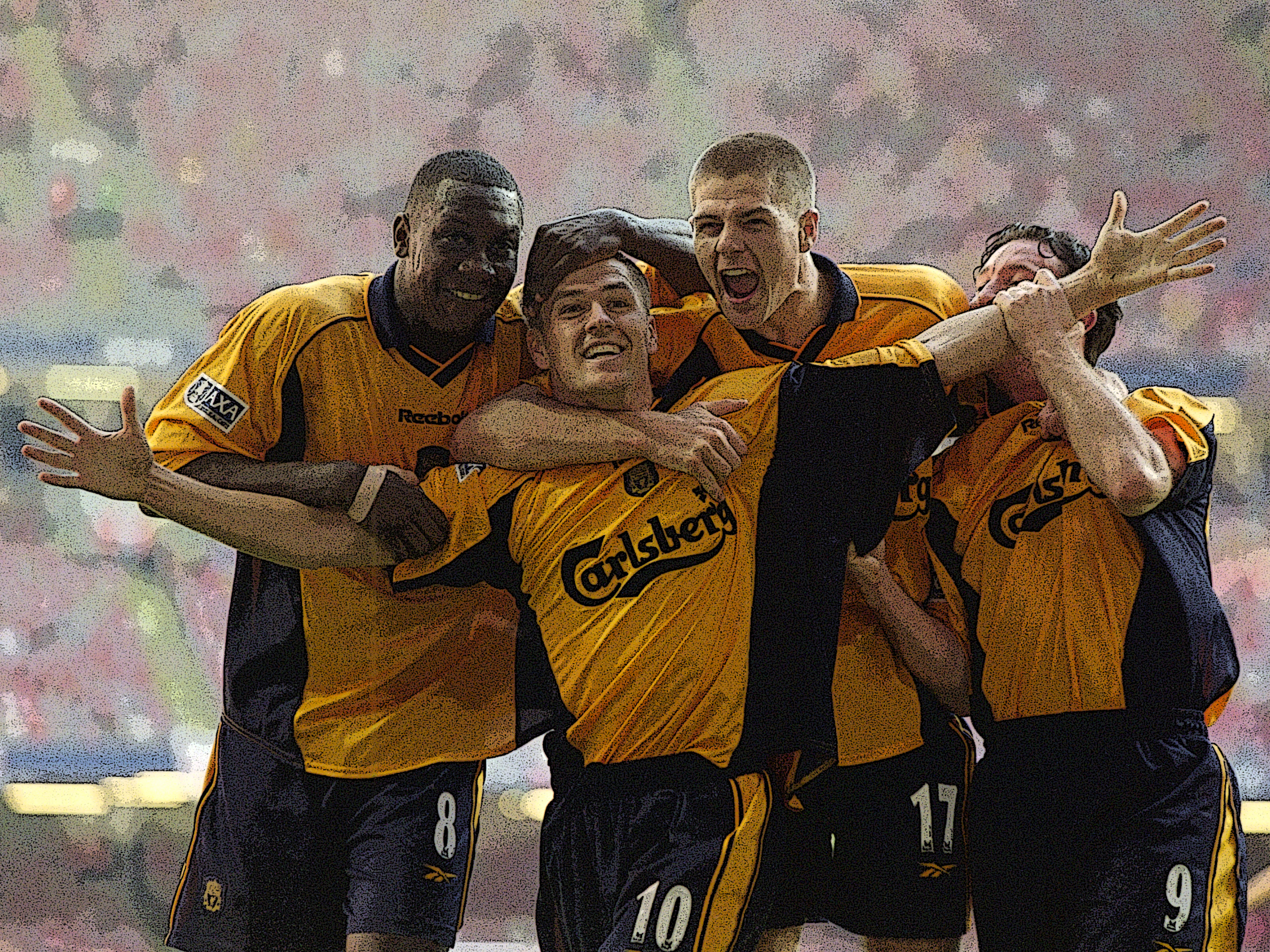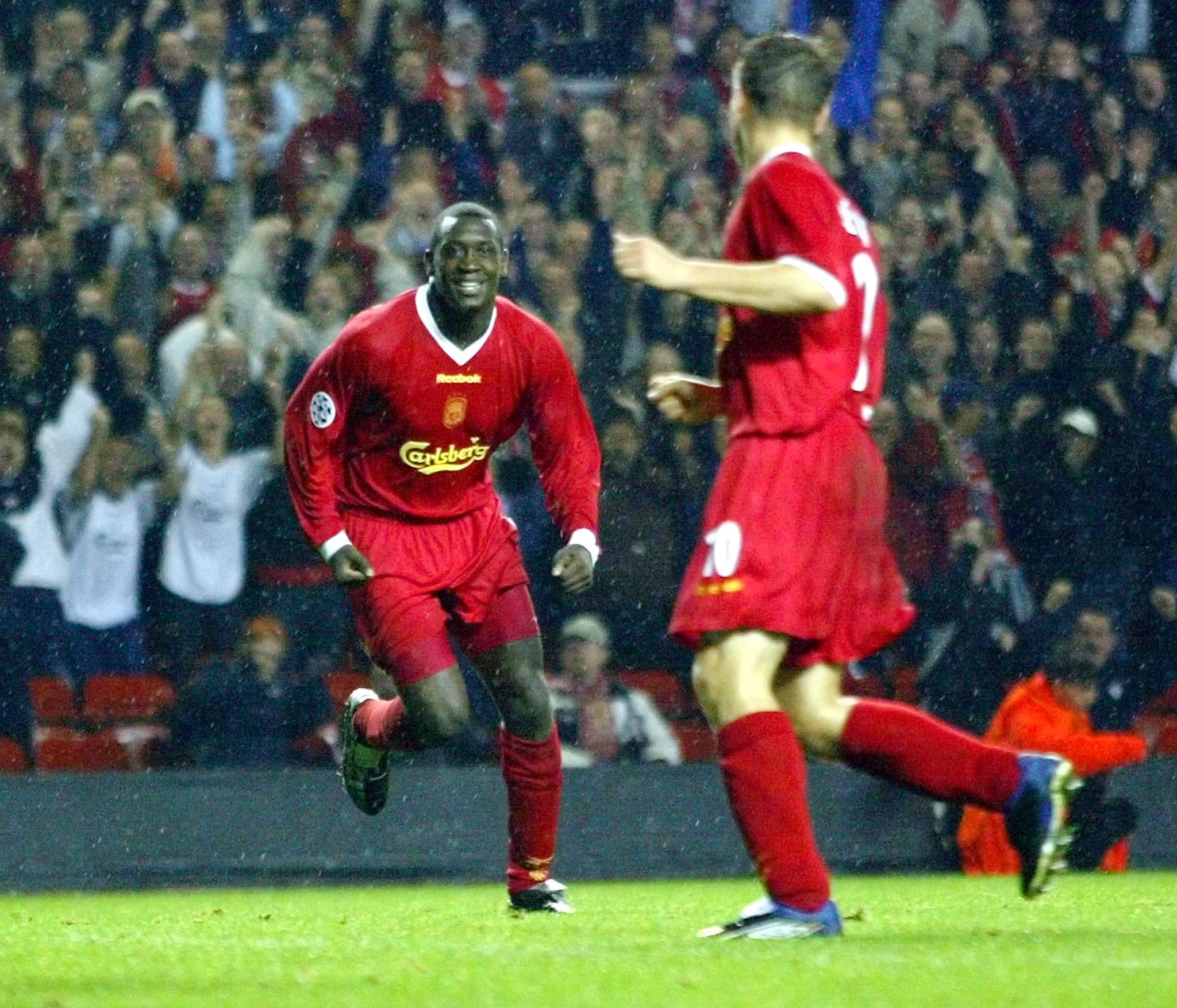The art of a target man: Emile Heskey on his relationship with ‘brilliant’ Michael Owen and linking play
One of the Premier League’s most successful hold-up players explains why he was motivated by working for the team more than scoring goals

Your support helps us to tell the story
From reproductive rights to climate change to Big Tech, The Independent is on the ground when the story is developing. Whether it's investigating the financials of Elon Musk's pro-Trump PAC or producing our latest documentary, 'The A Word', which shines a light on the American women fighting for reproductive rights, we know how important it is to parse out the facts from the messaging.
At such a critical moment in US history, we need reporters on the ground. Your donation allows us to keep sending journalists to speak to both sides of the story.
The Independent is trusted by Americans across the entire political spectrum. And unlike many other quality news outlets, we choose not to lock Americans out of our reporting and analysis with paywalls. We believe quality journalism should be available to everyone, paid for by those who can afford it.
Your support makes all the difference.The further the passing of time drags Emile Heskey from his playing peak in the early 2000s, the more appreciation for his skillset grows.
Heskey was derided for much of his career for being a low-scoring centre-forward, criticised for lacking a ruthless streak in front of goal. He is one of only 28 players to have scored 100 or more goals in the Premier League, yet of all the players to have achieved that feat, only Ryan Giggs, a winger, did so with a lower goals-per-game strike rate. His highest single-season return in league competition was just 14, and he only cracked double figures five times in the 21 years between his debut as a 17-year-old and his retirement in 2016.
But Heskey’s game was about more than goals. He derived just as much joy from providing assists – of which he racked up 53 in the Premier League – and, as a target man, would revel in creating space, time and opportunities for his team-mates.
“That’s just in my nature in general, regardless of what I’m doing.” Heskey tells The Independent of his selfless style. “I’m very much a people’s person. I’ll always sacrifice myself for other people. And it’s done alright for me.”
And no player benefited more from Heskey’s work rate, hold-up play and self-sacrifice than Michael Owen. It’s no coincidence that the former Real Madrid poacher’s most prolific form for both Liverpool and England was produced when he was partnered with Heskey. The pair’s most productive season, 2000-01, resulted in a treble of League Cup, FA Cup and Uefa Cup for the Reds and a Ballon d’Or for Owen.
“We played together from England under-18s and he was just brilliant,” Heskey says of his on-field relationship with Owen, whom he considers his greatest strike partner. “We had an understanding of how to play with players, what movements to do. We just clicked straight away and went from strength to strength. Once I started playing with him for Liverpool, we were training every day together. The manager used to take us to one side and we’d do little things together. It was just repetition.”
As Heskey’s tandem with Owen evidenced, a well-developed chemistry with those around them is the key to a target man being as effective as possible. While some players’ skillsets and styles dovetail naturally to form an instant on-field understanding, it is often relentless hours of work in training that hones such telepathy.

“You’ve got generic [moves], just holding the ball. That’s what Martin [O’Neill, the former Leicester City manager] always used to [have me] do: 'Just get it and hold it'. Waiting for runners to move around you. But if you’ve got an understanding with players around you – “Right, it’s coming into Emile. Where do I need to be? What runs do I need to be making.' I remember in the youth team, we used to do a lot of things where you wouldn’t even look where you’re setting it because you know somebody’s coming in to take it, or someone has already made the run across.
“When you talk about target men, midfielders don’t like when people hide; they want you to be showing for it, hbeing a team olding the ball up, passing it and moving around. It’s why Hazard liked playing with Giroud. He plays it into him, he gets it back off him, moves it around. You’ve got to have an understanding, a football brain.”
As a youngster Heskey initially stood out for his athletic gifts, being bigger and faster than most of his peers. An appreciation of the game’s subtleties soon developed, though, and he learned how best to deploy his physical advantages.
“When I got into football, it was just, ‘Give me the ball and I’ll run with it’,” he remembers. “I think I was what they’d class now as a No10 or a winger, but I slowly started moving up front by the time I was about 13 or 14.
“When you leave school and go into an academy, you understand it’s about what you contribute to the team. What stuck with me was, win your own battle and help your mate. I’ll dominate my own battle then smash someone else to help my mate. It didn’t always work out but that was the idea.
“As a No9, when you’re up front on your own, your job is to keep the defence as far back as possible. Why? Because that gives more space to the No10. So I’d make runs. Even if they know you’re going to run offside, they still have to take a step back. Suddenly they’re five yards further back and that creates space for [the No10]. I was always thinking about how I could create space for him.”
Any aspiring centre-forward looking to emulate Heskey’s ability to provide a focal point for the front line doesn’t have to match his physicality, but work rate, savvy movement and intelligent interplay are essential. There is one must-have attribute Heskey ranks above all others when it comes to drawing up the perfect target man, though.
“First and foremost, you’ve got to have a good touch,” the 62-cap former England international explains. “Even when setting yourself up for a shot – if you have a bad touch, you’re not going to have a good shot. Everything centres around having a good first touch.
“One thing we used to do when we were under-15s which I loved, we used to have a square. You go inside the square and people are pinging balls at you from all angles. They shout your name, then you have to turn and control it without going outside that box. After six months of doing that, suddenly your touch is good; no matter how it’s being fired in at you, you’re bringing it down.”
Were Heskey to be playing at his peak now, he would likely receive much greater recognition for his hold-up play and unselfishness, rather than facing incessant criticism over his scoring record.
It is widely accepted that a striker can still be a vital attacking cog even if they are less than prolific in front of goal – Giroud remains a key player for France, for example, and Roberto Firmino is an indispensable member of Liverpool’s front three. But Heskey is perfectly at ease with his place in Premier League history.
“I’ve opened up the pathway for them,” he laughs.
Emile Heskey’s autobiography, Even Heskey Scored, is available now.

Join our commenting forum
Join thought-provoking conversations, follow other Independent readers and see their replies
Comments